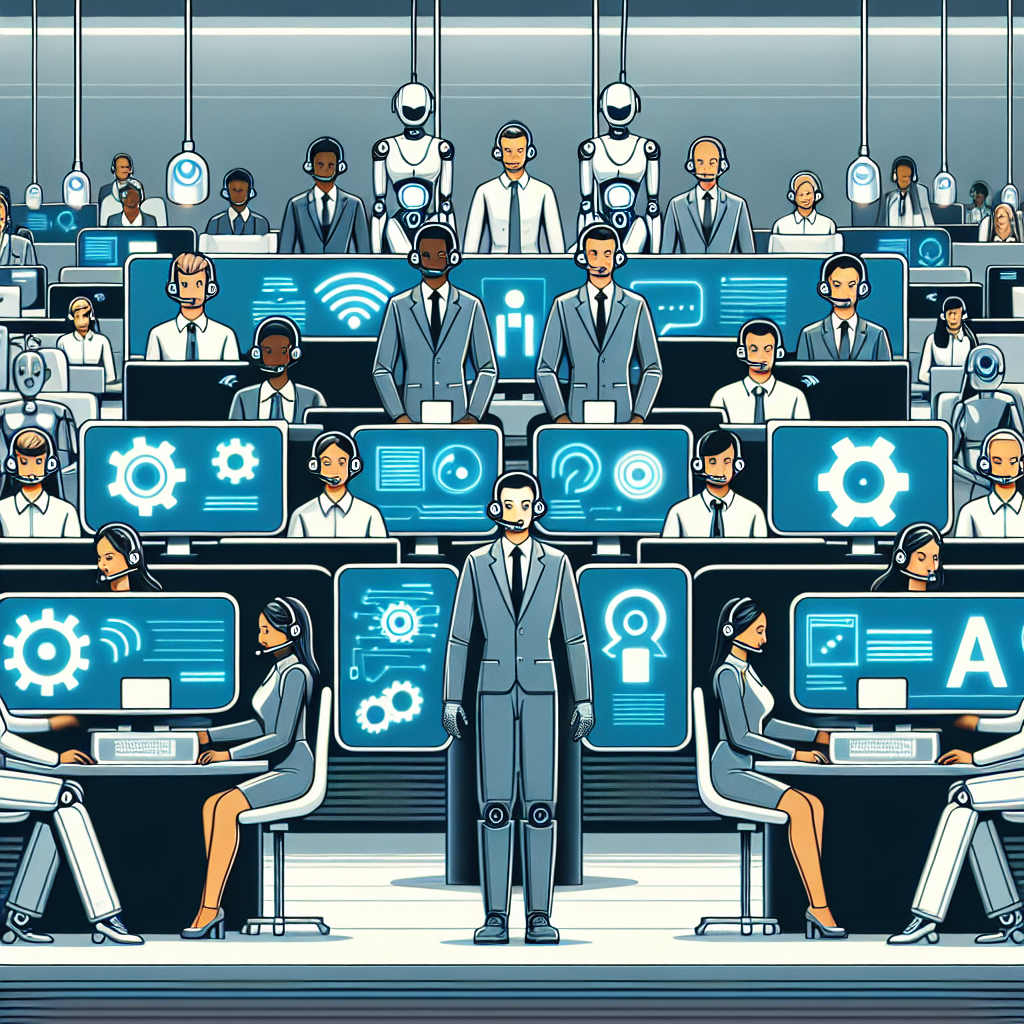Artificial Intelligence (AI) has been revolutionizing industries across the board, and customer service is no exception. The use of AI in customer service has improved efficiency, streamlined processes, and enhanced the overall customer experience. In this article, we will explore the impact of AI on customer service and discuss how businesses can leverage this technology to better serve their customers.
AI in Customer Service: An Overview
AI is a technology that enables machines to perform tasks that typically require human intelligence, such as problem-solving, decision-making, and natural language processing. In the context of customer service, AI can be used to automate repetitive tasks, gather and analyze customer data, and provide personalized recommendations to customers.
One of the key benefits of using AI in customer service is its ability to handle a large volume of inquiries quickly and efficiently. AI-powered chatbots, for example, can interact with customers in real-time, answering their questions and providing assistance 24/7. This not only improves response times but also frees up human agents to focus on more complex issues that require human intervention.
AI can also be used to personalize the customer experience. By analyzing customer data, AI can provide personalized product recommendations, tailor marketing messages, and offer customized support based on individual preferences and behavior. This level of personalization can help businesses build stronger relationships with their customers and increase customer loyalty.
Another way AI is transforming customer service is through the use of predictive analytics. By analyzing past customer interactions and behavior, AI can predict future customer needs and preferences, allowing businesses to proactively address issues before they arise. This predictive approach can help businesses anticipate customer needs, reduce churn, and increase customer satisfaction.
The Impact of AI on Customer Service
The impact of AI on customer service can be seen in several key areas:
1. Improved Efficiency: AI-powered chatbots and virtual assistants can handle a large volume of inquiries simultaneously, reducing wait times and improving response times. This can help businesses provide faster and more efficient customer service, leading to higher customer satisfaction and loyalty.
2. Personalized Customer Interactions: AI can analyze customer data in real-time to provide personalized recommendations, offers, and support. This level of personalization can help businesses build stronger relationships with their customers and increase customer lifetime value.
3. 24/7 Support: AI-powered chatbots can provide round-the-clock support to customers, answering questions and resolving issues even outside of regular business hours. This can help businesses provide better customer service and improve customer satisfaction.
4. Data-Driven Insights: AI can analyze large volumes of customer data to identify trends, patterns, and insights that can help businesses better understand their customers and improve their products and services. This data-driven approach can help businesses make more informed decisions and drive business growth.
5. Proactive Customer Service: AI-powered predictive analytics can help businesses anticipate customer needs and preferences, allowing them to proactively address issues before they arise. This proactive approach can help businesses build stronger relationships with their customers and increase customer loyalty.
FAQs
Q: How can AI improve customer service?
A: AI can improve customer service by automating repetitive tasks, providing personalized recommendations, analyzing customer data, and offering 24/7 support through chatbots and virtual assistants.
Q: Will AI replace human customer service agents?
A: While AI can automate many tasks in customer service, human agents are still essential for handling complex issues that require empathy, creativity, and critical thinking. AI can complement human agents by handling routine inquiries and freeing them up to focus on more strategic tasks.
Q: How can businesses implement AI in customer service?
A: Businesses can implement AI in customer service by investing in AI-powered chatbots, virtual assistants, and predictive analytics tools. They can also integrate AI into their CRM systems to provide personalized customer support and recommendations.
Q: What are the challenges of using AI in customer service?
A: Some of the challenges of using AI in customer service include ensuring data privacy and security, managing customer expectations, and addressing concerns about job displacement. Businesses must also invest in proper training and monitoring to ensure that AI is used effectively and ethically.
In conclusion, AI is transforming customer service by improving efficiency, personalizing customer interactions, providing 24/7 support, generating data-driven insights, and enabling proactive customer service. Businesses that leverage AI in customer service can gain a competitive edge, drive customer loyalty, and enhance the overall customer experience. By investing in AI-powered tools and technologies, businesses can streamline their customer service operations, increase customer satisfaction, and drive business growth in the digital age.

